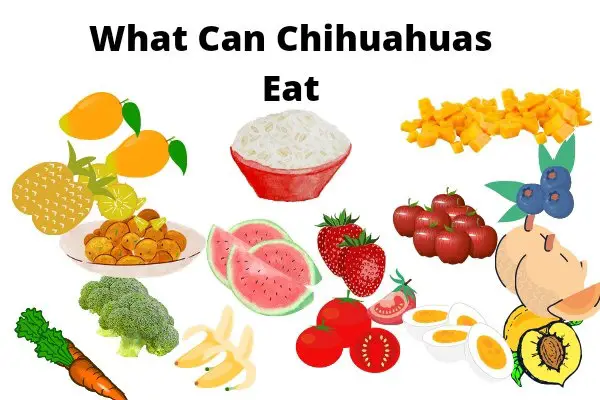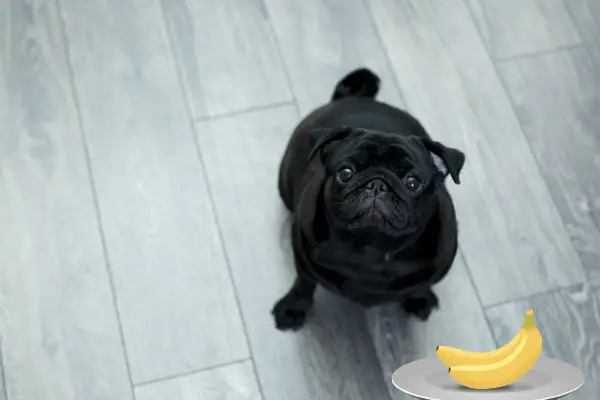What Can Shih Tzus Not Eat (15 Unsafe Foods Listed)
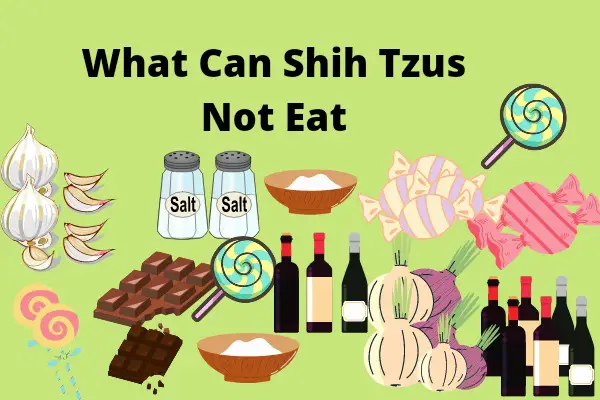
While some human foods are safe for dogs, some are not, so what can Shih Tzus not eat, let’s find out together.
We’ll go over the most popular human foods that you should never, ever feed to your Shih Tzu for whatever reason.
Due to the fact that Shih Tzus are smaller than large dogs, these meals may have a stronger impact on them.
We’ll go through some of the negative consequences of feeding specific foods to Shih Tzus.
What Can Shih Tzus Not Eat
The following is a list of foods that should be avoided by Shih Tzus:
1. Chocolate
Chocolate is one of the most dangerous foods for Shih Tzus since it contains theobromine, a toxin that may cause a number of health issues in Shih Tzu when ingested in large amounts.
Chocolate is harmful to Shih Tzus when taken in large quantities, and they should never be given it.
The symptoms a Shih Tzu may have as a result of ingesting chocolate are proportionate to their weight and size.
With only a few pieces, chocolate can cause allergic reactions in the sinuses and skin, constipation, and migraine headaches.
Side effects of giving chocolate to Shih Tzus include:
- Stomach rumbling
- Lethargy
- Partial seizure
- irregular heartbeats
- Increased thirst
- Intestinal discomfort
- Restlessness
- Possible diarrhea
- Allergic skin responses and panting
- Muscle tremors etc.
2. Caffeine products
Caffeine is an alkaloid present in cocoa beans, kola nuts, tea leaves, yerba maté, guarana berries, yaupon holly, and coffee beans, among other plants.
Caffeine can be present in soft drinks, medicines, and over-the-counter medications such as analgesics, diet aids, and cold/flu remedies.
Caffeine products should be avoided at all costs, as they may be harmful to your Shih Tzu.
Side effects of giving Caffeine products to Shih Tzus include:
- Fatigue
- Disorientation
- Irregular heart rhythm
- Sleeplessness
- Digestive difficulties
- Muscle breakdown
- Chronic dehydration.
3. Alcoholic products
Because Shih Tzus are such little dogs, even a sip from an unsecured drink or a rum cake piece mishandled might get into their system.
Alcohol or alcoholic products should never be provided to Shih Tzus since they are harmful and can cause dehydration and vomiting.
As a result, it’s never a good idea to give your Shih Tzu a lot of alcohol.
Side effects of giving alcoholic products to Shih Tzus include:
- Collapsing
- Lethargy
- Constipation
- Extreme dehydration
- Irregular heart rhythm
- Muscle breakdown
- Frequently
- Vomiting
- Dizziness
4. Avocado
Avocado poisoning happens when a Shih Tzu swallows or consumes a large amount of raw avocado.
The avocado pit contains a poison called persin, which makes Shih Tzus very sick if they eat it.
Although the avocado itself is poisonous, it is the avocado leaf, which is a part of it, that is the most dangerous.
Avocados are dangerous because their leaves, seeds, bark, and fruit contain a high amount of persin.
Avocados with pits can cause stomach problems, and the number of pits in different avocado cultivars varies.
Side effects of giving Avocado to Shih Tzus include:
- Diarrhea
- Gastrointestinal discomfort
- Latex sensitivity
- Pancreatitis upset
- Cardiac damage
- Allergies
- Liver difficulties
- Vomiting
- Itchy skin
5. Candy
All of the chocolates include xylitol, an artificial sweetener that, while not harmful to humans, may cause Shih Tzu to create more insulin.
Excessive sugar absorption from the blood and hypoglycemia is caused by high insulin levels.
Weakness, incoordination, seizures, and, in the worst-case scenario, liver failure ensues from low blood sugar levels.
Xylitol may also be found in toothpaste tubes, which you should keep out of your Shih Tzu’s reach.
Side effects of giving candy products to Shih Tzus include:
- Increased blood sugar levels
- Weariness
- Liver difficulties
- Gastrointestinal pain
- Pancreatitis upset
6. Onions and garlic
Despite the fact that garlic and onion are used in human medicine and are helpful to people, they should not be given to your Shih Tzu.
Even a small amount of this uncooked food might induce anemia and a deficiency of red blood cells in Shih Tzus.
No, Shih Tzus should never eat raw garlic or onions because they contain disulfides and sulfoxides, which are difficult to digest and create a burning sensation in the mouth or stomach in Shih Tzus.
Excessive amounts of onions can be dangerous to Shih Tzus, so it’s best to avoid feeding them any at all.
It’s highly likely that gastrointestinal irritation may occur, leading to the loss of red blood cells in your Shih Tzu.
Side effects of giving onions and garlic to Shih Tzus include:
- Anemia
- Chronic lethargy
- Acute heartburn
- High heart rate
- Allergic responses
- Continuous vomiting
7. Wild mushrooms
Shih Tzu that spends a lot of time alone outside is more prone to come across dangerous and wild mushrooms.
It’s vital that your Shih Tzu doesn’t eat them, as the results might range from mild illness to death, depending on which mushroom group they belong to.
Side effects of giving wild mushrooms to Shih Tzus include:
- Excessive stomach discomfort
- Convulsions
- Vomiting
- Diarrhea
- Liver and kidney damage
8. Unripe tomatoes
The major organic acids in fresh unripe tomatoes are citric and malic acid, which may not agree with a Shih Tzu’s stomach while being easier to digest for people.
It is not suggested to feed your Shih Tzu unripe raw tomatoes because the number of unripe tomatoes you feed your Shih Tzu might be dangerous.
If you want to offer tomatoes to Shih Tzus make sure you offer only ripe tomatoes to Shih Tzus in moderation.
Side effects of giving unripe tomatoes to Shih Tzus include:
- Urinary difficulties
- Acid reflux
- Heartburn
- Throat irritation
- Vomiting
- Disorientation
- Respiratory issues
- Renal troubles
- Diarrhea
9. Salty foods
Salty meals and snacks should be avoided by Shih Tzu. This raises their blood pressure and puts them at risk for renal failure. Salty treats are not allowed for Shih Tzus.
They include a lot of artificial colors and other ingredients that might cause your Shih Tzu to react negatively.
Excessive salt consumption in Shih Tzu can cause dehydration, which can lead to health concerns, so don’t give him salty food, no matter how cute he is.
Side effects of giving salty products or foods to Shih Tzus include:
- Kidney failure
- Chronic dehydration
- Vomiting
- Tremors
- High body temperature
- Seizures
- Depression
10. Nutmeg products
Nutmeg contains the toxin “myristicin.” It’s best to keep your Shih Tzu away from nutmeg, although he wouldn’t be damaged if he ate a small amount, he could get an upset stomach.
Keep your nutmeg storage and spices out of reach of your Shih Tzu, since if he raids your supply, he’ll only be able to consume enough nutmeg to make him sick.
Side effects of giving nutmeg products to Shih Tzus include:
- Heart illness
- Chronic diarrhea
- Bloating
- Hives
- Reduced immune system
- Metabolic syndromes
- Rashes
11. Artificial flavors or sweeteners
Artificial sweeteners are sugar substitutes that are added to foods and beverages to give them a syrupy sweetness.
Because they contain substantially less nutritional energy than sugar-based sweeteners, they are calorie-free or low-calorie sweeteners.
Artificial sweeteners should be avoided at all costs since they typically include xylitol, which is harmful to Shih Tzus and detrimental to their health.
Shih Tzus’ blood sugar levels decrease when they ingest large amounts of artificial sweeteners.
Side effects of giving artificial flavors to Shih Tzus include:
- Abnormal cholesterol levels
- Excessive blood sugar
- Diarrhea
- Bloating
- Hives
- Reduced immune system,
- Metabolic syndromes
- Rashes
12. Moldy or stale foods
If you feed your Shih Tzu kibbles and industrial snacks, keep a check on his diet for mold.
Always keep an eye on the date of the food or treats you’re giving your Shih Tzu.
Always check to verify if the food you’re getting out of the fridge is still healthy before feeding it to your Shih Tzu.
Mold can grow on even so-called industrially prepared dry kibble, making this the most dangerous diet for your Shih Tzu.
Moldy food, particularly dry dog food, produces mycotoxins, which make Shih Tzus sick if they consume it.
Side effects of giving moldy or stale food to Shih Tzus include:
- Vomiting
- Hives
- Chronic diarrhea
- Decreased immune system
- Stomach bacteria
- Fever
- Rashes
13. Cherries
Cherry trees contain cyanide and are harmful to Shih Tzus, with the exception of the fleshy area around the seed.
Because cyanide inhibits cellular oxygen transfer, your Shih Tzu’s blood cells will not receive enough oxygen.
If your Shih Tzu consumes cherries, keep an eye out for dilated pupils, trouble breathing, and red gums, which might indicate cyanide poisoning.
14. Grapes
Grapes should never be eaten by Shih Tzus as they can cause avoidable gastrointestinal issues.
Grapes and raisins (dried grapes) have been found to be extremely hazardous to Shih Tzus of all breeds, sexes, and ages.
Grapes, in fact, are so poisonous that they can cause acute renal failure. Always keep an eye out for this poisonous fruit for Shih Tzus.
15. Asparagus
While asparagus isn’t technically harmful to Shih Tzus, it’s pointless to feed it to them.
Asparagus is too rough to eat fresh, and by the time it’s cooked down to the point where it’s soft enough for Shih Tzus to consume, it’s lost most of its nutrients.
If you truly want to share a vegetable, one that is more nutritious is definitely the best option.
With the information provided on this page, I strongly believe your question What Can Shih Tzus Not Eat was answered!

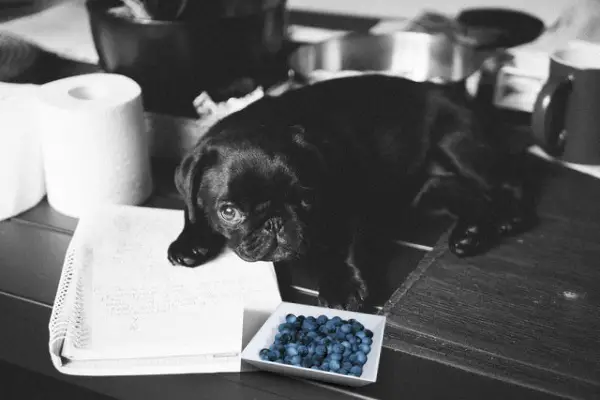
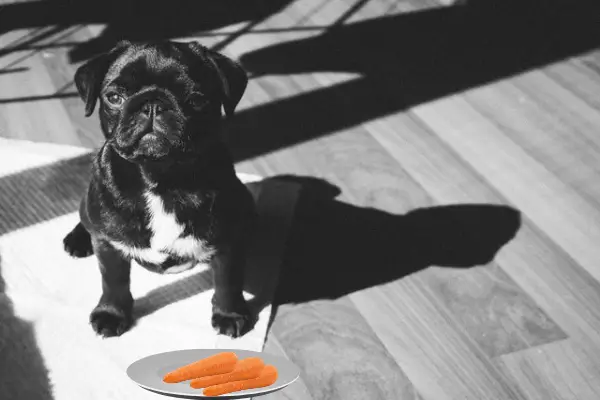
![Can French Bulldogs Eat Bananas [How To Feed] Can French Bulldogs Eat Bananas](https://petcreeks.com/wp-content/uploads/2021/07/Can-French-Bulldogs-Eat-Bananas-768x644.jpg)

